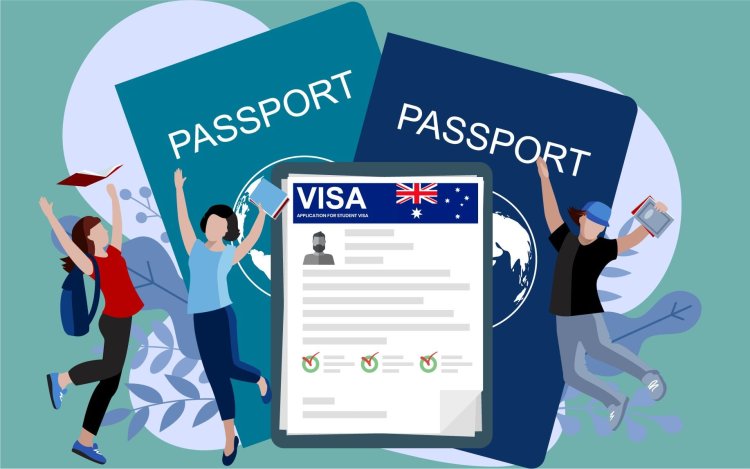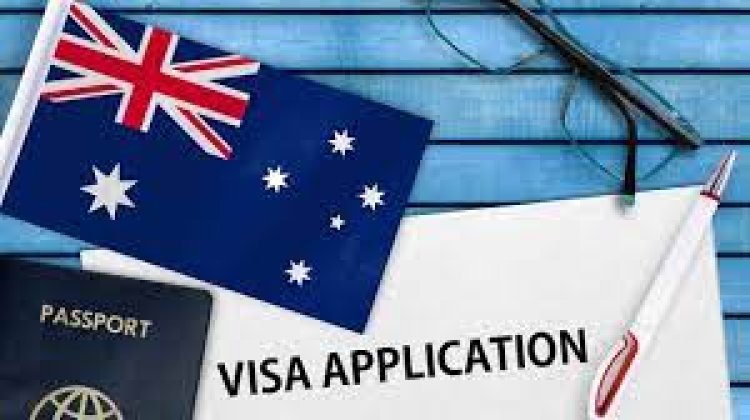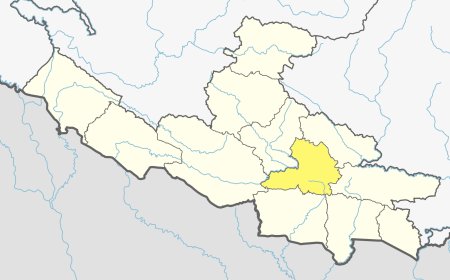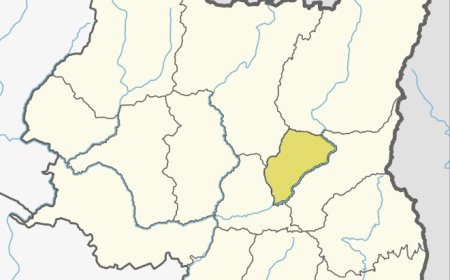Guide to Australian Student Visa: Requirements, Jobs, and Earnings
Learn how to apply for an Australian student visa, required documents, financial proof, job opportunities, and earning potential as a student in Australia.
Introduction
Australia has become one of the favorite countries chosen by international students because of its world-class education, adventurous lifestyle, and vast professional opportunities. However, in order to go to Australia for studies, there is a procedure of visa application. This guide outlines steps, necessary documents, and the financial obligations a student needs to fulfill in order to get an Australian student visa.
1. Australian Student Visa-Subclass 500
The Subclass 500 visa allows international students to study an eligible full-time course at a provider registered with the Australian government for the delivery of education services to overseas students. It allows a student to have part-time work, enabling the person to support themselves financially, affording them an opportunity to work.
2. Documents Required for Australian Student Visa
To facilitate a smooth application process, it is important to lay your hands on some essential documents. These include:
- CoE confirmation of enrolment: If you get your admission to any Australian university or institution, then you will receive a Confirmation of Enrolment. This is the most crucial visa application document. Valid Passport: The validity of your passport should not be less than six months after the date you plan to stay. Form 157A: This is the prescribed application form for the Subclass 500 visa.
- GTE Statement: This is your personal statement, stating that you are only going to study temporarily in Australia and reassuring them that you will go back to your home country after your studies.
- Financial Evidence: You need to show you can support yourself while you stay. It would be roughly AUD 24,505 per year for living expenses, excluding tuition fees and travel.
- OSHC: Health insurance is a must and should be valid throughout the stay of the student.
- Scores of the English Proficiency Test: this varies with different institutions and their respective courses, requiring the production of a test result regarding proficiency in the English Language.
- Academic Transcripts: these are records from previous studies like high school diplomas, certificates, or degrees.
- Character and Health Requirements: These might encompass a police clearance and/or a medical examination which a student would have to undertake to satisfy a certain level of good character and health.
3. Financial Requirements towards studying in Australia
Australia has requirements that ensure international students can support themselves. In 2024, you will be required to show you can access a minimum of AUD 24,505 per annum for your living costs; you will need more to cover tuition and the costs of travel back home. If you will have family members with you in Australia, the financial requirement is higher.
In some cases, one can be permitted to show evidence of financial capability presented in the form of parental or personal income. The evidence accepted by the Department of Home Affairs currently is annual income of at least AUD 62,222 on the part of an individual student or AUD 72,592 in cases where family members accompany them.
4. English Language Ability: IELTS, PTE, or TOEFL?
In the case of the majority of international students, the ability in the English language is an essential part of a visa application. Whichever your course or institution, you will be required to take one of these two widely accepted tests:
- IELTS-International English Language Testing System: The majority of Australian institutions need a minimum overall score of 6.0 to 6.5 in undergraduate programs.
- Pearson Test of English: Most undergraduate programs require a minimum of 50-58, but this might go up for postgraduate courses.
- Test of English as a Foreign Language: The requirement in most universities of Australia is a test score between the range of 60-90, which varies with the nature of study.
- Pre-foundation courses, proficiency in an English Language Test, and even passed education previously done in English and students from selective English-speaking countries may also exempt a student doing an English test.
5. Working While Studying: Earning Potential and Job Opportunities
Students in Australia have the right to part-time work during studies, which helps to reduce the burden of living expenses and accumulates work experience. During the academic term, students can work for a maximum of 48 hours in a fortnight and can work full time during holidays.
- Earnings: The minimum wage in Australia is approximately AUD 23.23 per hour as of 2024. Wages may go higher depending on the nature of the job and your skills.
- Job Opportunities: Apart from academics, students can be employed in the following sectors:
- Hospitality: Restaurants, cafes, and bars are undoubtedly the most common student workplaces.
- Retail: Employments in supermarkets, cloth stores, or malls enable them to work at any time.
- Tutoring: If you feel good in some particular subject, then tutoring is one of the highest-paid activities.
- Office Administration: Most businesses hire students for part-time office administration jobs.
- Delivery and Ride-Sharing: Students have been doing food delivery or working with services like Uber.
In most cases, they have flexible hours and are thus suitable for students due to their cleaning and customer service nature.
Conclusion:
The application for an Australian student visa might sound complicated, but if well-planned and prepared for, it could be an easy process. Having all the documents needed, satisfying the financial requirements, and being informed of your rights about work will put you on the right track toward a successful experience while studying in Australia. From world-class education to opportunities that provide personal growth, a life-changing experience is furthered when studying in Australia.
Following are some of the frequently asked questions regarding an Australian student visa:
1. What is an Australian Student Visa, Subclass 500?
The subclass 500 visa allows a student from another country the opportunity to study full-time in one of the registered education providers in Australia. It allows international students to stay in Australia for the purpose of full-time study, participate in part-time work during the course of study, and do full-time work during holidays.
2. What are the key documents required to apply for an Australian student visa?
Key documents to be presented include Confirmation of Enrolment, CoE; valid passport; proof of financial capacity; Overseas Student Health Cover, OSHC; English proficiency test results; academic transcripts; Genuine Temporary Entrant, GTE statement; and health and character certificates.
3. Will I need to prove my proficiency in the English language for an Australian student visa?
Yes, all students will have to show evidence of an English language proficiency test, such as IELTS, PTE, or TOEFL, unless exempt, as qualified by Immigration, from an English-speaking country, or previously studied in English.
4. How much money do I have to demonstrate for the Australian student visa?
For 2024, you must demonstrate proof of at least AUD 24,505 per year for living expenses plus additional money for your tuition and travel costs. If you have family, it will be more expensive.
5. Can I work while on an Australian student visa?
Yes, you can work while you are here on an Australian student visa-a maximum of 48 hours per fortnight during study periods and during school holidays, no limit is imposed.
6. What type of jobs do students get in Australia?
Some common student jobs include hospitality, that is restaurants and cafes, retail jobs like supermarkets or stores, office administration, tutoring, delivery service, cleaning, and customer service
7. How does the Australian student visa take for the processing?
The time for the processing of it varies, but it usually takes 4 to 6 weeks. It is recommended that you apply as early as possible, and for most the universities or colleges, at least 3 months in advance from the intended start date.
8. Can I bring my family with me on a student visa?
Yes, you can bring eligible family members with you on your student visa; you just have to show that you can financially support them.
9. Do I need health insurance for a student visa in Australia?
Yes, you need to have OSHC, which is overseas student health cover for the whole duration of your stay in Australia, which also covers your family. This is a mandatory requirement.
10. Am I allowed to stay in Australia once I finish my course?
Yes, at the end of your course, you could be entitled to apply for a Temporary Graduate Visa, subclass 485, that allows you to stay and work in Australia for a certain period. This visa can provide a pathway to permanent residency depending on qualifications and circumstances.
What's Your Reaction?









































































































